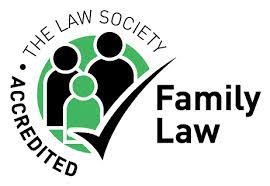Freehold and Leasehold are the legal terms defining the different types of ownership of a property. When buying a property, it is important to know if you will be purchasing leasehold or freehold as there are important differences between the two – each type of ownership will have its own costs and responsibilities.
What is a Freehold property?
Purchasing a Freehold property means that you will own the property and the land it is built on. This makes you the sole legal owner of the property and the ground the property is built on. Most UK houses are freehold, but not all, so if you are adamant that you want a Freehold property then you will need to check this before putting an offer on the property.
Advantages of buying a Freehold property
As you own the property and the land the property is built on, there are (usually) no service charges or annual ground rents to be paid. You will be solely responsible for the maintenance of the building and its land. This means you won’t have any issues with the freeholder not maintaining any part of the property’s exterior or paying the fees for any improvements or repairs that you may not consider necessary.
When purchasing a freehold property, you will own the property and the land for as long as you choose to, there are no concerns about a lease over the property running out.
You can make changes to the structure of the property, giving you full flexibility to make home improvements. You will need to check the title register as there may be restrictive covenants that prohibit certain changes and of course, if you wanted to add an extension, you will need the necessary planning permission from your local council. The advantage with freehold is that you will not need to discuss your plans for that extension with a ‘Management Company’ or ‘Landlord’ beforehand.
As previously mentioned, if you are a freeholder, you are solely responsible for the property and the ground it is built on, meaning all repairs and the costs for these falls with you. Buildings insurance will need to be put in place, especially if you are purchasing your property with the help of a mortgage. The costs for the maintenance and upkeep of your property and any home improvements you want to make to the property are also your responsibility.
Usually when purchasing a freehold property, there are no service charges, however if there are services shared with your neighbours such as communal gardens, you may find that there are charges to enable the upkeep of these.
When searching for your new home you could notice that freehold properties are sold for much more than leasehold properties. This could be down to several reasons such as the area the property is in or how big the property is, but it could also be because you are buying freehold and there is a ‘premium’ for owning the property and the land as well.
What is a Leasehold property?
Leaseholders own a property for a limited time, as stated in their lease agreement, but don’t own the land that the property is built on. The Freeholder (often referred to as the Landlord or Management Company) owns the land and the property and provide a lease agreement to the Leaseholder. Leases in this situation last much longer than tenancy agreements you would see in rented accommodation, with leases often lasting as long as 999 years.
Advantages of buying a Leasehold property
When buying a leasehold property there is a freeholder who will be responsible for the upkeep of the property and the land. Very often, flats, apartments and maisonettes will be leasehold properties and the entranceways, hallways and external garden areas are the responsibility of the freeholder. If you were to purchase a semi-detached house on an estate, you may have access to a play park or a communal garden area, the upkeep of this would likely fall with the freeholder, with your only responsibility being to pay towards the upkeep.
The Freeholder is often responsible for putting in place buildings insurance. This will mean that you will only need to cover the cost of contents insurance. Not having to arrange this will result in a saving for you when purchasing, and it is one less thing that you will need to arrange before you complete, as buildings insurance is required to be in place from the date of exchange.
There is sometimes an option to buy the Freehold if you have owned the property for two years or more, this is known as the right to buy. This option does have eligibility requirements and so is not available for everyone, but if you are eligible this could be the best of both worlds option.
Drawbacks of buying a Leasehold property
One downside of owning a leasehold property is the impending expiration of the lease agreement. Lenders will often request that the lease remaining is at least 70 years before approving a mortgage application. Leaseholds with shorter leases can be difficult to sell, as many people do purchase a property with a mortgage and so may struggle to get approved by a lender. There is the option to extend the lease, however there will be extra costs to do this.
When buying a Leasehold property, you will find that if the property has a Management Company there are often Notice fees (and sometimes other fees) to pay when you complete the purchase to enable to Management Company to transfer you as the owner of the property on their systems. Once you own the property you will also be responsible for paying Service Charges and Ground Rent to the Management Company, both of which may increase during your period of ownership, making budgeting your expenses quite difficult.
Whilst having a Freeholder in place who is responsible for the maintenance and structure of the building and the shared areas takes some pressure off you, you may find that there are greater financial implications and reduced freedoms. For example, you will likely need written permission from the Freeholder to make changes to the property, and fees may be payable. You may also find that if work needs doing to the shared areas, especially within a block of flats, the Leaseholders are required to contribute to the cost of these works separately to their service charges.
The costs with a Leasehold Property don’t end there, as when it comes to selling the property, you may also find that there are extra fees payable for your solicitor/conveyancer to obtain a Management Pack, which contains details of the property that will need to be sent over to your buyers’ solicitors. These are all costs that you will need to consider before purchasing a property, even though they may not affect you at the time of buying.
Which is best for you?
To make the best decision you will need to consider your future plans and how owning freehold, or leasehold could affect those plans. Whichever option you choose will also depend on the availability of properties on the market and your financial circumstances.
If you have purchased a leasehold property and know that you plan to sell it within 10 years and there are still 887 years left on your lease, then you shouldn’t have any issues. However, if you plan on buying a flat using a mortgage with the intention of selling in 10 years and there is only 72 years left on the lease, you may have difficulties with finding a new buyer.
If you are purchasing a property for your family to grow into and want to own a property that offers long-term stability, independence and flexibility to grow with your family, perhaps a freehold property is the way to go.
Regardless of your preferences and the property that you are wanting to purchase our experienced Conveyancing Department will be able to explain matters of title to you so you have all the information you could possibly need to make decisions that are right for you.













